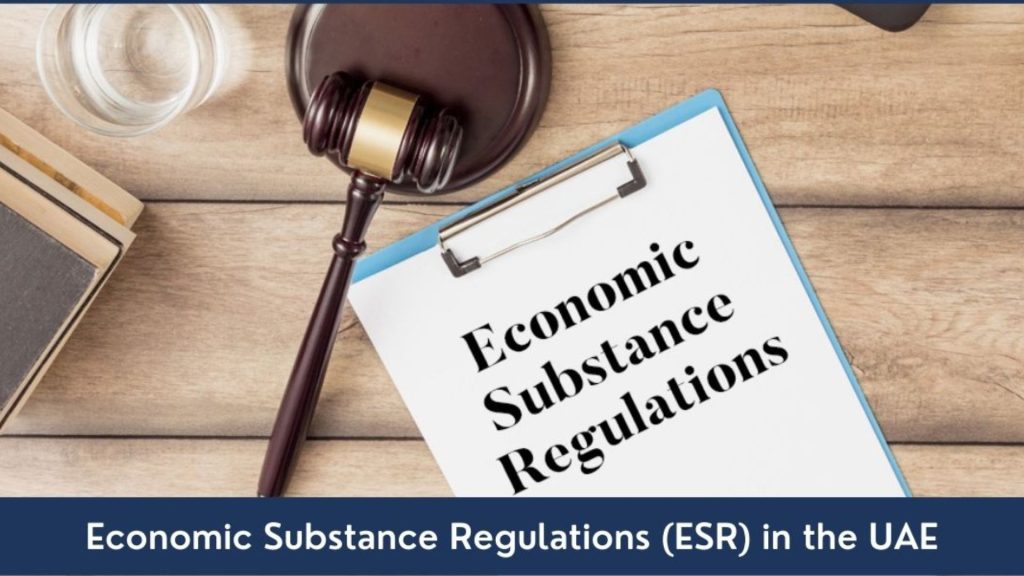In recent years, governments worldwide have implemented economic substance regulations (ESRs) to combat tax avoidance and improve transparency in cross-border transactions. These regulations have had a profound impact on how businesses operate globally, changing the dynamics of cross-border trade and requiring companies to demonstrate that they have real economic substance in their jurisdictions.
ECONOMIC SUBSTANCE REGULATIONS

Economic Substance Regulations in UAE require businesses to have substantial economic activity in a jurisdiction to claim tax benefits or avoid taxation altogether. Essentially, ESRs aim to ensure that companies refrain from using tax havens or low-tax jurisdictions to avoid paying taxes in their home country or countries with significant economic activity. To comply with ESRs, companies must demonstrate that they have a substantial presence in a jurisdiction, which means having employees, assets, and operations commensurate with the economic activity they are undertaking.
The introduction of ESR has changed the dynamics of cross-border trade in several ways. First, companies are now required to provide more information about their operations and financial activities, making it easier for tax authorities to detect and investigate potential tax avoidance. This has increased transparency and accountability in cross-border transactions, which is good news for governments and taxpayers.
Second, ESRs have made it more difficult for companies to use tax havens or low-tax jurisdictions to avoid paying taxes. In the past, companies could establish a subsidiary in a low-tax jurisdiction and use that subsidiary to shift profits out of high-tax jurisdictions. However, ESRs require companies to have a substantial presence in the jurisdiction where the economic activity is taking place, which means that simply having a subsidiary in a low-tax jurisdiction is no longer enough to claim tax benefits.
Third, ESRs have forced companies to reevaluate their cross-border operations and consider whether they have a genuine business reason for establishing operations in a particular jurisdiction. This has led to some companies restructuring their operations and consolidating their activities in fewer jurisdictions, which can help to reduce compliance costs and administrative burdens.
Finally, ESRs have increased the importance of tax planning and compliance for businesses operating globally. Companies that fail to comply with ESRs can face significant penalties and reputational damage, which can impact their ability to do business in the future. As a result, businesses must carefully consider their cross-border operations and ensure that they comply with ESRs in all relevant jurisdictions.
The introduction of ESRs has also increased the demand for tax and legal advisors to help businesses navigate these regulations. These advisors can help businesses understand the requirements of ESRs and develop strategies to ensure compliance while minimizing their tax liabilities.
In conclusion, economic substance regulations have significantly impacted cross-border trade and have changed how businesses operate globally. These regulations have increased transparency and accountability in cross-border transactions, made it more difficult for companies to use tax havens or low-tax jurisdictions to avoid paying taxes, and forced companies to reevaluate their cross-border operations. Going forward, more countries will likely implement ESRs, which means that businesses operating globally must remain vigilant and comply with these regulations in all relevant jurisdictions.

Businesses in UAE who fall under the Economic Substance Regulations need to notify the concerned authorities (ESR notification in Dubai, UAE) and file reports at the end of each year. ESR report filing in UAE is mandatory.

